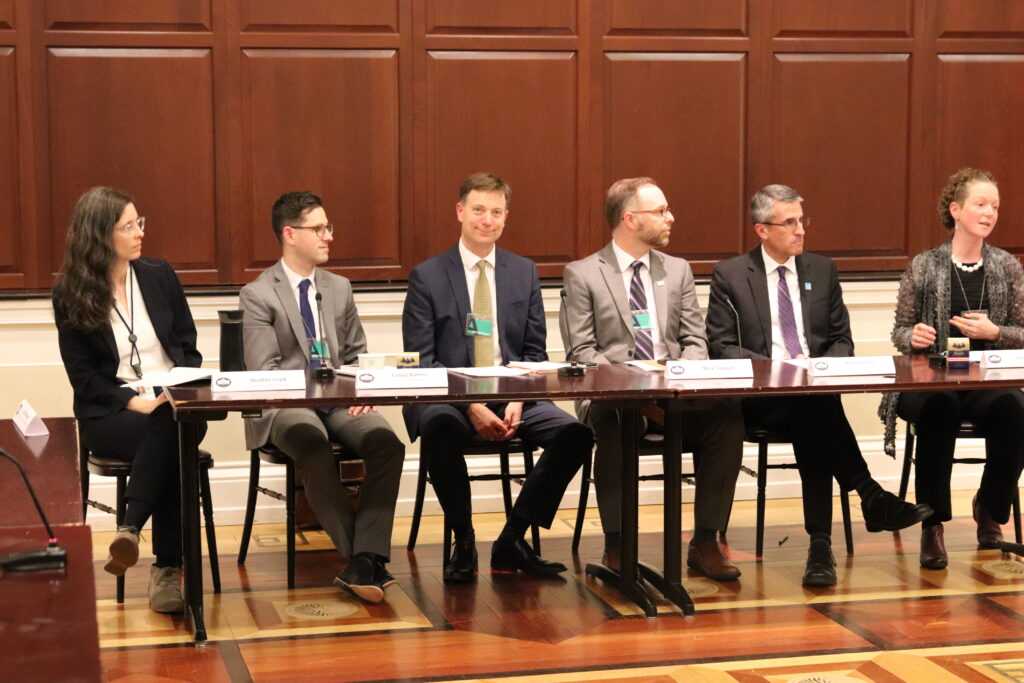
On May 4, 2023, Cliff Majersik, IMT’s Senior Advisor for Policy and Programs, spoke about building performance policies during the White House Convening on Advancing Clean Buildings. Content below is reposted from the May 5, 2023 White House Readout
Readout of White House Convening on Advancing Clean Buildings
Yesterday, the White House convened 24 Governors’ offices to discuss how the Biden-Harris Administration can amplify states’ efforts to lead on commercial and residential building decarbonization policies that lower utility bills, improve climate resilience, and reduce emissions. In attendance were Ali Zaidi, the National Climate Advisor, Brenda Mallory, Chair of the Council on Environmental Quality (CEQ), and senior officials from the U.S. Department of Energy (DOE), U.S. Department of Housing and Urban Development (HUD), and the Environmental Protection Agency (EPA). Participants discussed pathways to accelerate progress through federal-state partnership, the Inflation Reduction Act (IRA) and the Bipartisan Infrastructure Law (BIL), and technical support from the DOE and EPA. Additionally, the Institute for Market Transformation highlighted that there are 2.1 million energy efficiency jobs in America per 2022 DOE US Energy and Jobs Report.
President Biden’s Investing in America agenda is growing the American economy from the bottom up and middle-out—creating a manufacturing and innovation boom powered by good-paying jobs and building a clean-energy economy that will tackle the climate crisis and make our communities more resilient. To achieve these goals, President Biden set a target to reduce emissions 50-52% below 2005 levels by 2030 and achieve net-zero emissions economy-wide by no later than 2050. Building emissions account for almost 40% of United States greenhouse gas emissions. In addition to needing to reduce emissions, President Biden is also focused on lowering energy costs for Americans. Two-thirds of low-income U.S. households have high energy burdens. States are at the forefront of advancing building decarbonization, and have an opportunity to reduce emissions, lower energy costs for American families, improve resiliency and create jobs through building policies and federal-state partnerships.
Administration officials highlighted how states are uniquely positioned to cut building related emissions using financial tools available to them as part of the Bipartisan Infrastructure Law and Inflation Reduction Act and are setting the pace for progress by advancing creative policy pathways and innovative programs. The State of Maine highlighted how they are bringing heat pumps to rural underserved communities, which has resulted in lower energy bills for Maine families and cleaner air. They also shared that starting in 2024, Maine Housing will be financing Passive House Certified affordable housing, which uses upwards of 40-60% less energy than code-built buildings, at minimal additional cost. The group discussed how Louisiana is investing in energy and building codes to increase climate resiliency in the face of catastrophic hurricanes and flooding, while reducing emissions and cutting utility costs for households.
The White House officials closed the meeting by thanking states for their efforts. DOE, EPA, and HUD shared technical resources that will be available to states and communities to support their efforts to reduce energy waste in the building sector and create jobs.